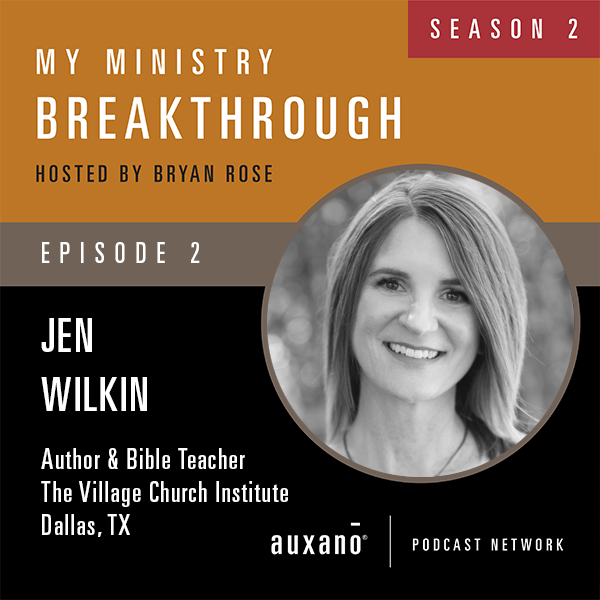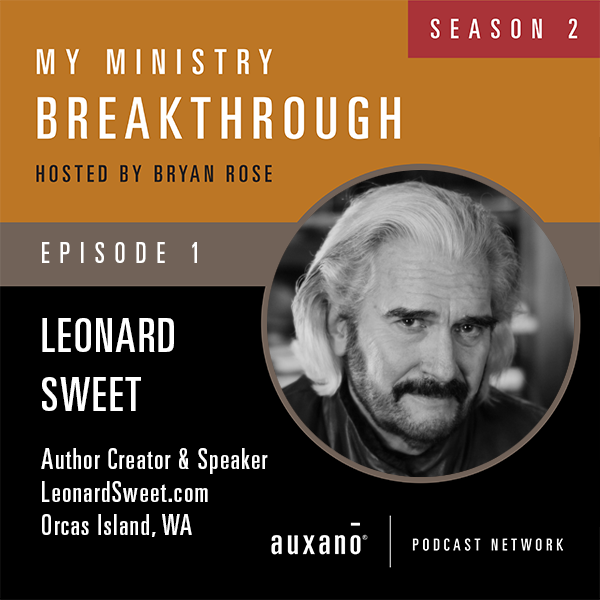2_02: Jen Wilkin – A Gut Check on Biblical Literacy & Sound Preaching
Breakthrough Ideas with Jen:
- When you’re a single woman in the church, you usually kind of keep moving around because you don’t always fit very well.
- We treated the Bible like it was magical, like if I open it up the Holy Spirit was just going to drop out insight on me just because I had been faithful to sit down and give it a little bit of my focus.
- We treat the Bible, often with less respect than we would treat a common textbook or the works of Shakespeare.
- We should recognize– obviously the Bible is much more than a book but it is at least a book. And that it would abide by some rules that all books abide by.
- But the only way that person will be able to develop the sermon around what is sound teaching and what is not sound teaching is if they have firsthand knowledge of most of the text.
- Those who had a platform became comfortable with holding the position of expert and those who sat in the pews became comfortable with holding the position of amateur.
- The people in the seats took on this idea that they required someone to just download the interpretation and application of the text.
- Most of us come to church to sit under teaching over passages that we had spent little-to-no time in ourselves prior to listening to that teaching.
- The first guard against false teaching is knowing what the text says.
- And the reality is the discipline is not dead. It just follows the most compelling message.
- If people are giving their discretionary time a lot of other places and yet they’re not willing to give it to the church, well then that’s on us. That means that we’ve not communicated a compelling vision for why this matters.
- You have to believe down to the soles of your feet that if people don’t have basic bible literacy if there are actually very negative consequences associated with that.
- I have found almost without exception that people don’t know the bible.
- Your people will never rise to an expectation that you have not set.
- People actually gravitate toward committing to things that raise the bar, not things that lower the bar. That’s why people run marathons.
- Our MO with Christian education for the last 30 years has been, “I don’t think they’ll do that.”
- The first question that many of us in church leadership have asked has been, What do our people want?” And a better question, to begin with, is, “How are disciples formed?”
- If we’re supposed to make disciples and teach them to obey all that Jesus has commanded, then what mechanism is going to allow us to do that?
- The more organic a ministry model is, the harder it is for women, in particular, to opt in.
- Because women are typically primary caregivers for at least one other human being, in order for us to opt into any commitment, we require a high level of structure, predictability, accountability, accessibility, excellence.
- We need to have at least some spaces where we’re raising the bar and we’re asking more from our people, then those environments will require structure and accountability and predictability and accessibility, and that they’re done with excellence.
- While I talk a lot about building Bible literacy, the little secret is that it’s not actually just Bible literacy that people are developing. It’s just literacy.
- Is it any wonder that many teenagers leave home and don’t take the Bible seriously or don’t take Christianity seriously, when it has asked so little of them during their formative years?
- In many churches, the needs of women are not heard with regularity just because of a leadership structure that is perhaps predominantly are all male.
- Within the church, we have widows’ and orphans’ needs that can sometimes be missed by men in leadership if they don’t have access to regular input from the women in the congregation.
- Anytime you start talking about women in leadership in the church, I’m either perceived to be a feminist by those who are more conservative or a patriarchalist by those who are more liberal
- We’re committed to making sure that our church is a place where you could say, “That’s a church mother. That’s a spiritual mother for the women in our church. She’s visible. She’s obviously serving, contributing in good ways.”
- The first common misstep that well-meaning men in leadership can make when they realize that they’re missing the voices of women is to say, “Oh, let’s let’s ping our wives on this.”
- Putting women into rooms where key decisions are being made means that you’re inviting someone into the room not just because they’re female but because they’re the right person to be in the room.
Breakthrough Resources in this Episode:
The Village Church Core Classes
The Knowledge of the Holy by AW Tozer
Jen Wilkin is an author and Bible teacher from Dallas, Texas. She has organized and led studies for women in home, church, and parachurch contexts. Her passion is to see others become articulate and committed followers of Christ, with a clear understanding of why they believe what they believe, grounded in the Word of God. She currently serves on the staff of The Village Church Institute. You can find her at JenWilkin.net.

Podcast: Play in new window | Download
Subscribe: Apple Podcasts | RSS | More
